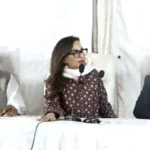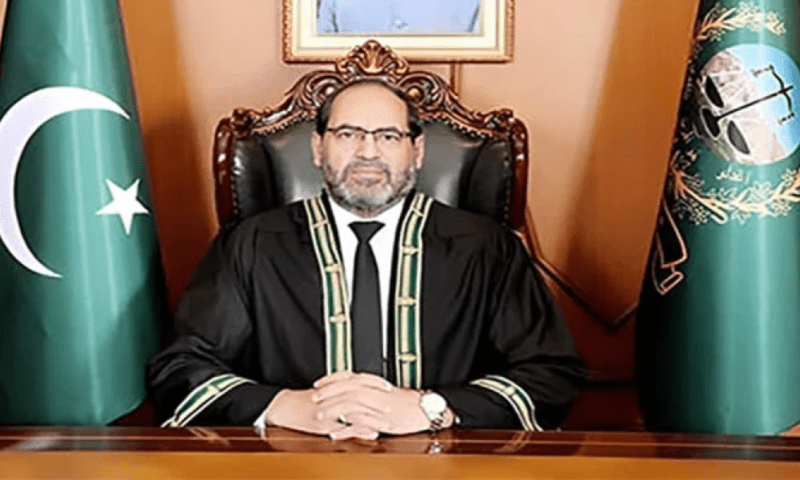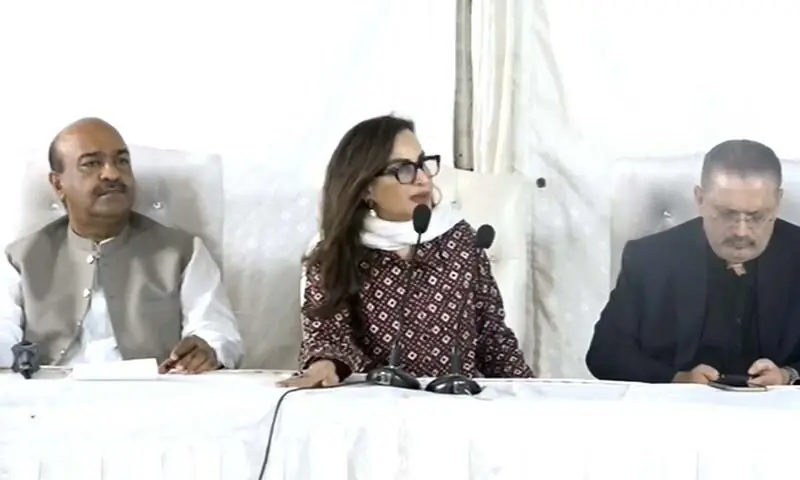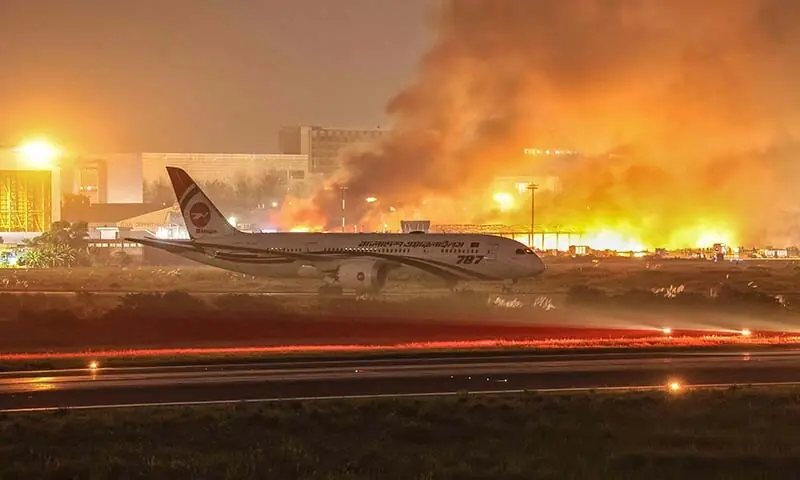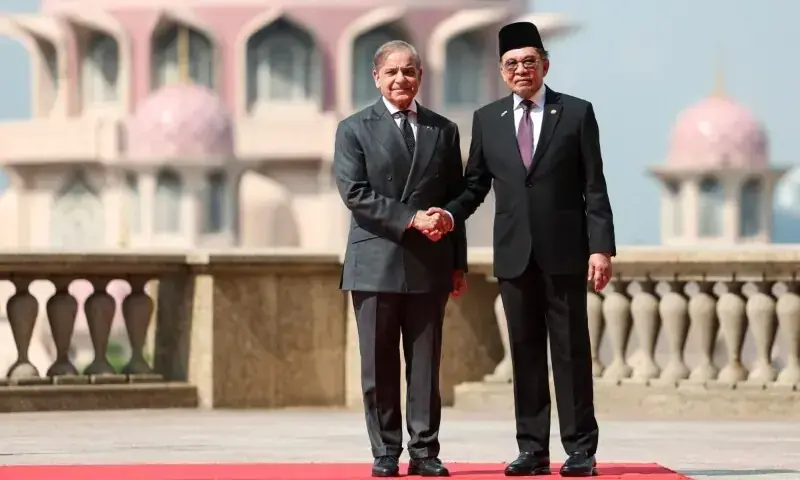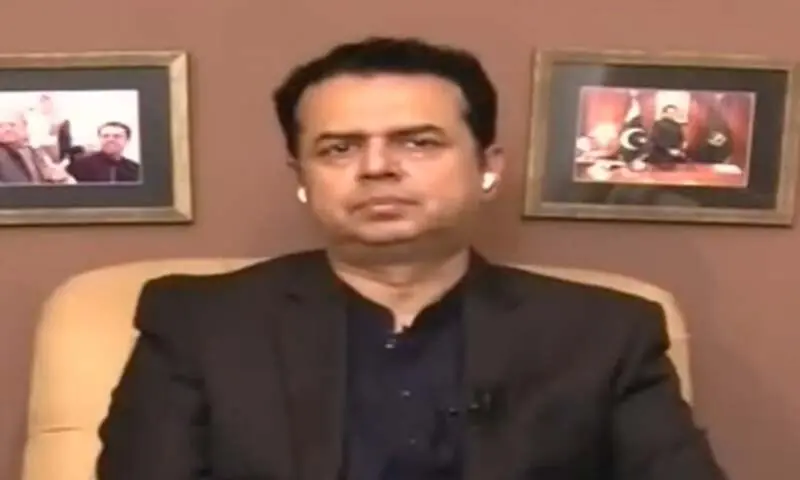Judge Naeem Akhter Afghan commented on Friday that trials in a military court were “similar” to those in a civilian court, as a constitutional bench of the Supreme Court heard a case on military trials of civilians over the May 9 riots. last year.
The case concerns the military trials (and recent sentences) of civilians for their role in attacks on army installations during the unrest that followed the arrest of former Prime Minister Imran Khan on May 9, 2023.
Judge Afghan’s comments came as the court resumed hearing intra-judicial appeals (ICAs) challenging the October 23, 2023 ruling of a five-judge court that had unanimously declared that trying civilian defendants in military courts violated the Constitution.
The seven-judge constitutional bench is headed by Justice Aminuddin Khan and also includes Afghan judges Jamal Khan Mandokhail, Muhammad Ali Mazhar, Hassan Azhar Rizvi, Musarrat Hilali and Shahid Bilal Hassan.
In recent hearings, Supreme Court judges have questioned why the accused were “specifically” tried in military courts rather than anti-terrorism courts, with Justice Mandokhail observing that “the executive cannot play the role of the judiciary.”
During today’s hearing, Advocate Khawaja Haris appeared as counsel for the Ministry of Defense and continued his arguments in the case. Additional Attorney General (AAG), Aamir Rehman, was present as state counsel.
Judge Afghan commented: “There is also the possibility of retaining a lawyer of your choice in a court-martial case. “Trials before a military court are also similar to ordinary (civilian) courts.”
However, Judge Mandokhail questioned whether “an officer presiding over a military court is perfect enough to hand down such harsh sentences.”
Justice Hilali also questioned trials in military courts, pointing out that cases related to the May 9 riots were registered under the Anti-Terrorism Act (ATA), rather than the Army Act.
The hearing was adjourned until January 13 (Monday), when the Defense Ministry’s lawyer will continue his arguments.
On December 13, the Constitutional Chamber of the SC conditionally allowed military courts to pronounce reserved verdicts on 85 civilians who were detained for their alleged participation in the riots of May 9, 2023.
On December 21, military courts sentenced 25 civilians to prison terms of between two and ten years for their role in the attacks. Days later, 60 other civilians were sentenced to prison terms of similar length in the matter.
On January 2, 19 defendants’ clemency petitions were accepted on humanitarian grounds, while another 48 petitions have been processed before the Courts of Appeal.
The sentencing of civilians by military courts was not only condemned by the PTI, but the United States, the United Kingdom and the European Union also expressed concern, saying the move contradicted international laws.
the audience
At the beginning of the hearing, Judge Mandokhail asked the defense lawyer to inform the court about the judicial process in military courts.
Justice Hilali commented: “An official hearing the trial in court does not pronounce the verdict himself. The trial official sends the case to another higher official, who announces the verdict.
“How does an official who was not familiar with the case pronounce the decision?” she asked.
Stating that despite having pursued a judicial career for 34 years, he did not consider himself “complete”, Judge Mandokhail questioned: “Does an army officer have sufficient experience and knowledge to be imposed a death sentence?” .
Haris, the Defense Ministry lawyer, responded that he would detail the military trial process in the second phase of his arguments.
Justice Mandokhail then pointed out that there was a difference between the Pakistan Army Act 1952 and “other laws”. “According to the Constitution, all of these protect fundamental rights. The law has given a reasonable explanation.”
At the time, the Afghan judge recalled presiding over “many court-martial cases” in the Balochistan High Court, before his promotion to the SC. Judge Rizvi noted that there were defense lawyers in the General Field Martial Court, not judges.
In this case, the Afghan judge asked Haris to detail the fundamental rights guaranteed under Article 10-A (right to a fair trial) of the Constitution.
“How are trials carried out in military courts? What are the stages in it? Tell him everything. Everyone thinks that trials in military courts are not like civilian courts. Give an example of any trial held in a military court,” he said.
Haris then responded that the Army Act was a “special law” and added that the “process for [collecting] the evidence and the trial were different” under special laws.
On this point, Judge Afghan commented: “There is also the possibility of hiring a lawyer of your choice in a court-martial case. “Trials before a military court are also similar to ordinary (civilian) courts.”
Judge Rizvi later stated that during his career he had appeared as a defense lawyer in military courts. “In addition to an attorney, an officer is also designated as a ‘friend’ of the suspect.”
Justice Mandokhail reiterated his question about the experience of an officer appearing before a military court and asked whether he was “perfect enough to hand down such harsh sentences”.
In this case, Judge Hilali referred to an example given by Haris about military trials held in the United States and asked: “If such a trial were held in another country, who would be the judge?”
To this, Justice Mazhar responded: “Officers are the ones who preside over a court-martial around the world.” Haris also claimed that the officers were “experienced.”
Judge Hilali then commented: “After turning off the airport lights, an army chief’s plane was asked to leave the country. “All passengers were at risk in this incident.”
To this, the Defense Ministry lawyer responded: “How can a person who was not on the plane kidnap him?” Judge Hilali reiterated that passengers were in danger even though there was “some fuel” left in the plane’s engine.
Haris later said he would not discuss “political matters”, but the SC acknowledged that there was “enough” fuel available in the engine.
“Martial law was imposed in the country due to this single incident. Even after martial law, that trial was not held in a military court,” Justice Hilali observed.
More to follow


